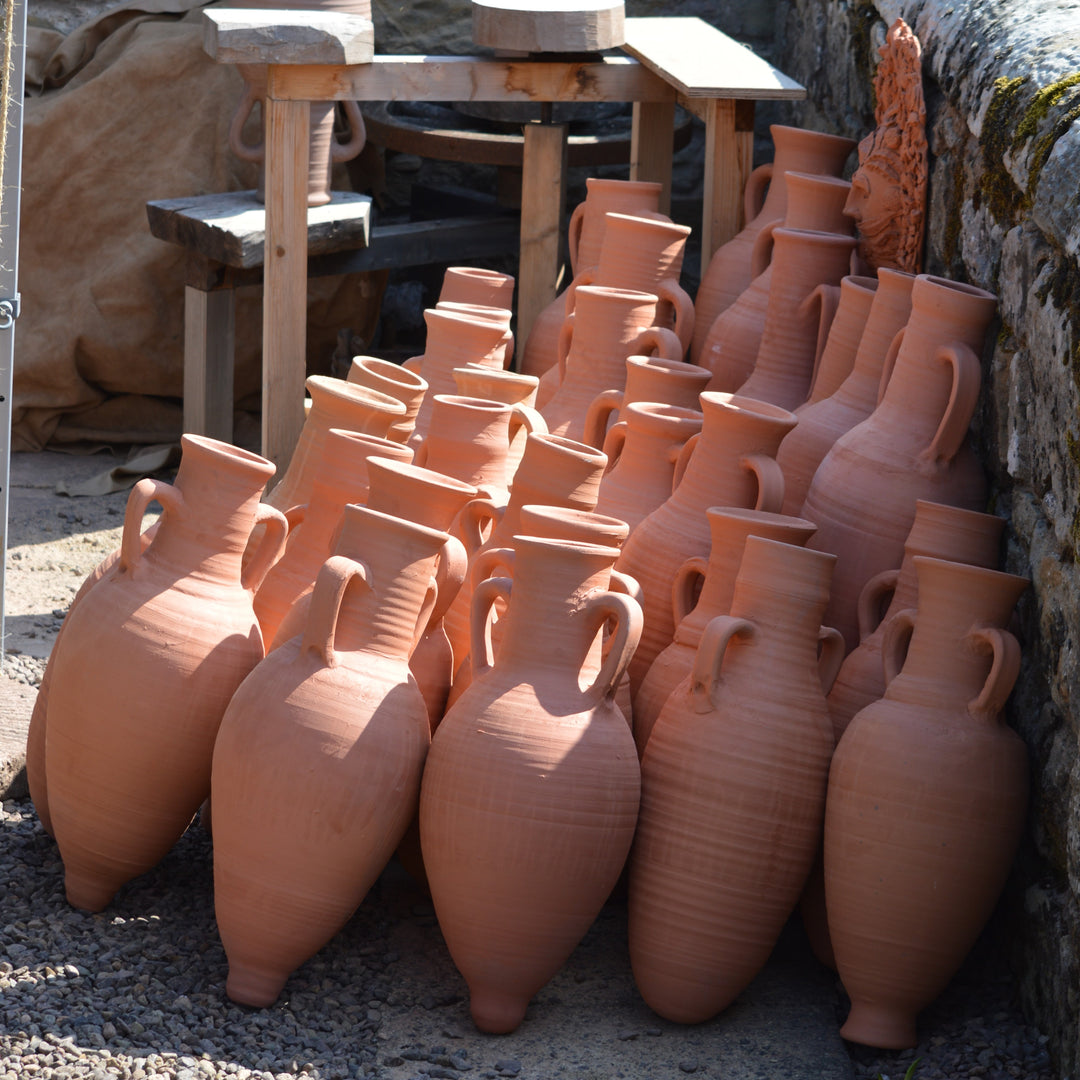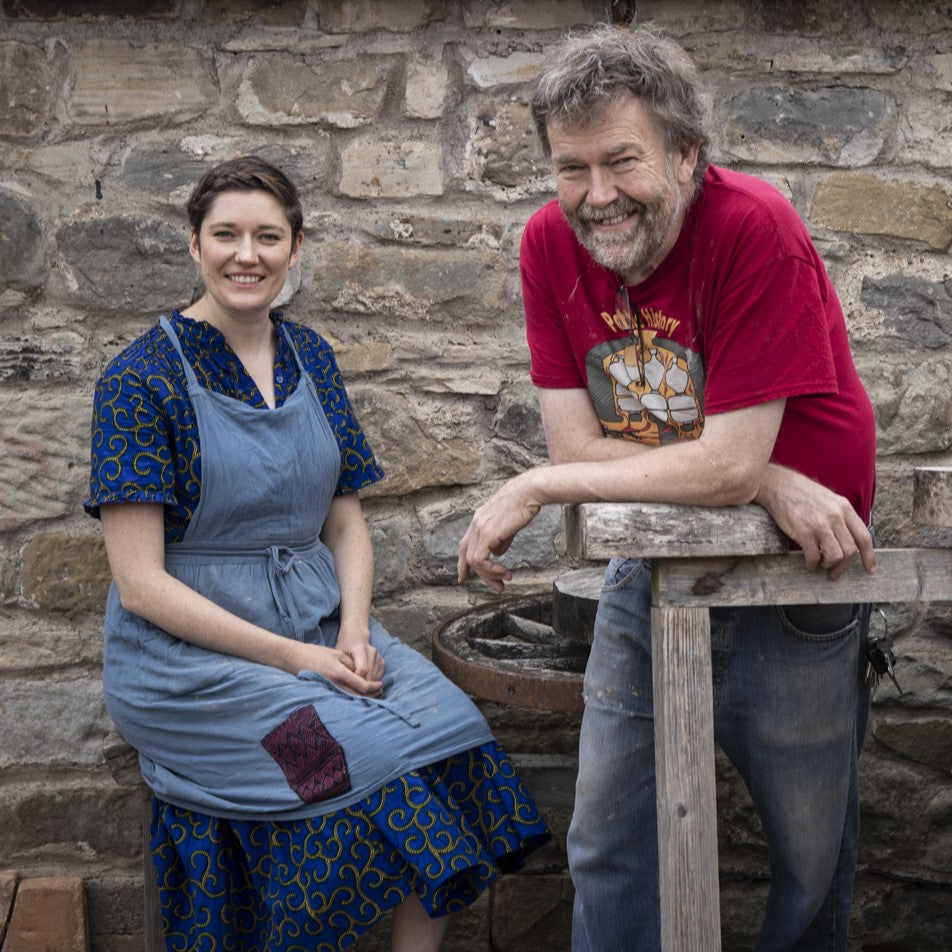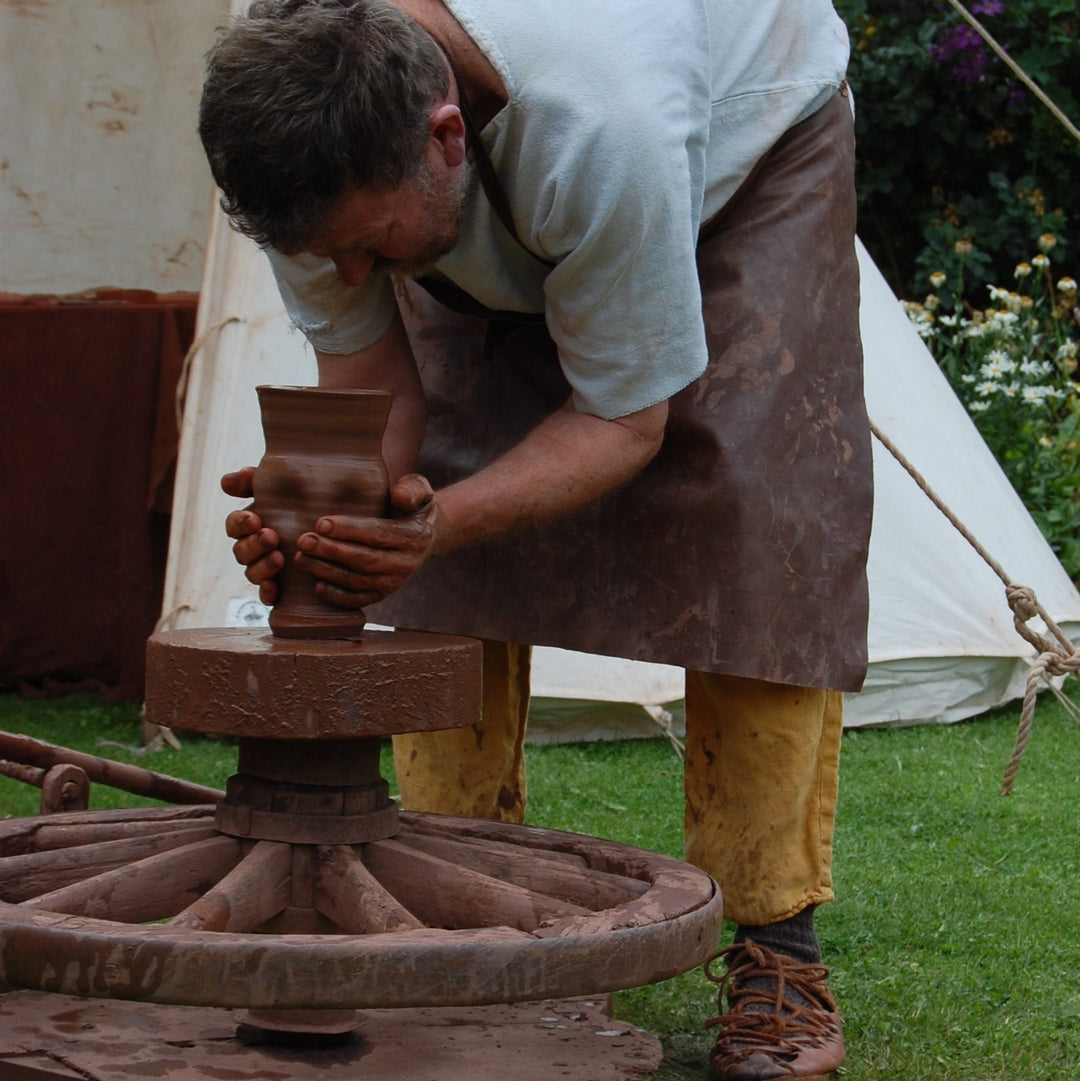Durotriges Strainer, Romano- British
- Low stock - 8 items left
- Inventory on the way
Handcrafted Replica Romano-British Straining Bowl – Inspired by the Durotriges
Details
This replica straining bowl is inspired by an original vessel discovered during excavations by the Durotriges Project, an archaeological investigation into prehistoric and Roman societies in central and southwestern Britain.
One of the primary goals of this research was to determine the extent to which Romanisation influenced Britain's native cultures and, perhaps more excitingly, to assess how much of their unique identity they retained during the 400 years of Roman occupation.
The Durotriges were a culturally distinct Iron Age tribe inhabiting a region roughly corresponding to modern-day Dorset, Wiltshire, and Somerset. While many previously believed that the Roman conquest in AD 43 erased native traditions, findings from the Durotriges Project suggest that this resilient people continued many of their unique customs and craftsmanship throughout the occupation.
One of their defining artistic traditions was their exquisitely burnished pottery, including these beautifully finished straining bowls. Unlike mass-produced Roman pottery, these pieces were labour-intensive, with the burnishing process alone taking over 45 minutes per bowl.
Purpose of the Straining Bowl
Although there is no definitive evidence for its exact use, this vessel was likely a practical kitchen tool. Ancient cooks may have used it to strain various foods and beverages, serving a purpose much like modern kitchen sieves.
Materials
Earthenware, terracotta. Fired in reduction conditions.
Dimensions
- Height: Approx. 110 mm
- Diameter: Approx. 160 mm
Production
This museum-quality replica has been entirely handmade in Northumberland by Potted History, inspired by original artefacts.
- Handcrafted using traditional Romano-British techniques
- Fired between 800°C - 1,000°C to replicate the authentic process
- Each piece is unique, with variations in surface colour and texture, just as seen in original Roman pottery
- Due to natural firing variations, you may not receive the exact strainer pictured, but we will select one that closely matches your chosen colour preference
Health & Safety
- Museum-Quality Replica: Created using historically accurate tools and techniques.
- Unglazed and porous surface: As with the originals, this bowl absorbs flavours over time, which may have enhanced the taste of dishes in ancient times.
- Not suitable for modern cooking: Due to its porous nature, this vessel does not meet modern health and safety standards for food use.
- Ancient cooking practices: Historical cooks relied on heating their pots and contents above 70°C for at least 10 minutes to kill bacteria, with temperatures of 100°C providing even greater protection.
Ordering Information
- 'Add to Basket' Items: Ready to ship immediately.
- 'Pre-order' Items: Handmade to order within 90 days (longer for international orders). If your order includes both 'Add to Basket' and 'Pre-order' items, they will be shipped together once all items are ready.
Shipping
- Standard shipping: Sent via second-class postal service.
- Faster delivery: If you require first-class shipping, please contact us for a custom quote.
Honour the craftsmanship of ancient Britain – order today and own a piece of Romano-British history!
SHIPPING
'Add To Cart' items are ready to send straight away. Please be aware that if bought alongside 'Pre-order' items, your order will be sent when all items are ready.
'Pre-order' items are made to order, and we will dispatch them as soon as we have handcrafted them for you; this usually takes 90 days, but international orders can take a little longer.
We ship our fabulous replicas worldwide.
Shipping costs are worked out during checkout. They are based on where you are in the world and how heavy your parcel is, which can be very variable.
All items are sent using a second-class postal service. If you wish to have an item sent first class, please contact us for a quote. Many Thanks
RETURNS
If you aren't completely satisfied with your Potted History piece, please get in touch to organise a return. Email us at
pottedhistory@rothburycreates.co.uk
Then you can send it back at your own cost in an unused condition within 30 days, and we'll refund you for the cost of the item or items returned. If you include your order number with the returned package, that will speed things up. Please leave any original packaging intact.
Our returns address is:
Potted History, Gregory Court, Rothbury, Northumberland, NE65 7SW
PRODUCT VARIATION
Please be aware that due to items being handmade and finished, colour variations will occur during the making process, and each replica will have some differences. Also, know that the item photographed may not be the one that you receive, and colours can appear differently on different screens. Please ensure you look at all the images to get a fully formed idea of the item you are ordering as we try to capture the variations within the images we share. If you prefer a specific colour variation, please contact us before ordering.















